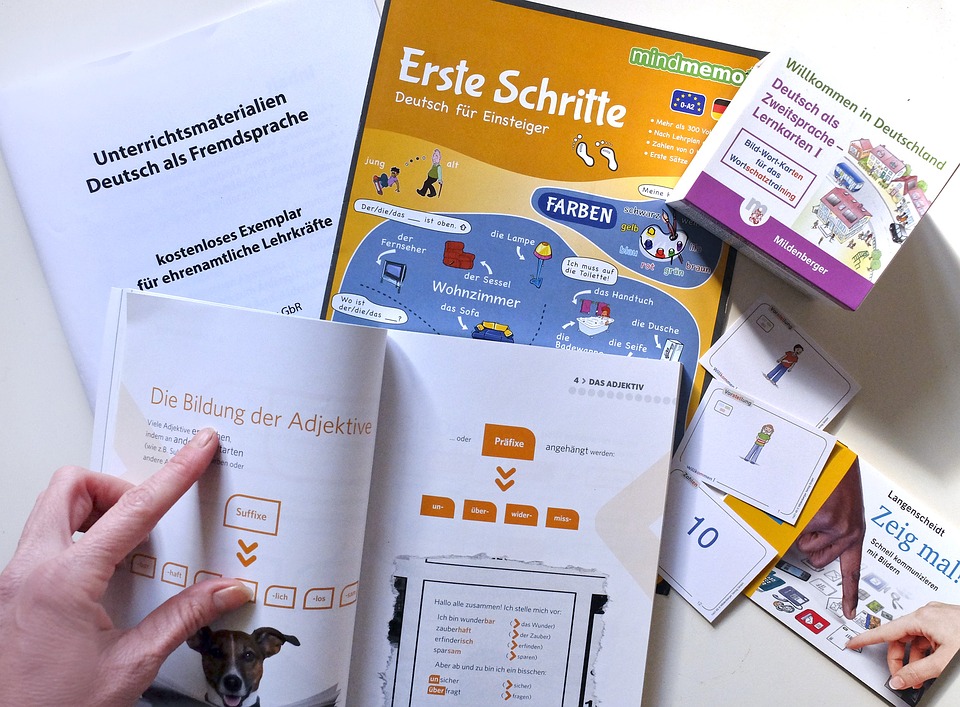Another useful language available through us is German.
It’s mainly spoken in Central Europe and is the most widely spoken and one of the official languages in Germany, Austria, Switzerland, South Tyrol (Italy), the German-speaking community of Belgium, and Liechtenstein.
Here’s an interesting fact (according to Wikipedia): German has the largest number of native speakers in the European Union (far more than English, Spanish, or French) and is among the ten most commonly spoken languages in the world. It is also a ‘common language’ of Central and Eastern Europe.
And …
Germany is the world’s second-largest exporter.
The German economy ranks number one in Europe and number four worldwide*. Its economy is comparable to that of all the world’s Spanish-speaking countries combined.
Germany is home to numerous international corporations.
Direct investment by Germany in the United States is over ten billion dollars.
22 Nobel Prizes in Physics, 30 in Chemistry, and 25 in Medicine have gone to scientists from the three major German-speaking countries, while many laureates from other countries received their training in German universities. Eleven Nobel Prizes in Literature have been awarded to German-language writers, and seven Germans and Austrians have received the Peace Prize.
Germans are world leaders in engineering. Think Audi, BMW, VW, Daimler and BASF.
German and English are similar. Many words in German sound and/or look the same as equivalent English ones, because the two languages share the same “grandparent.” For example, look at these words:
Haus = house, buch = book, finger = finger, Hand = hand, name = name, mutter = mother, schwimmen = to swim, singen = to sing, kommen = to come, blau = blue, alt = old, windig = windy
The German-speaking world has produced some of the most revered filmmakers of the 20th century – from Fritz Lang to Rainer Werner Fassbinder, Wim Wenders and a new generation of trans-national directors such as Tom Tykwer and Fatih Akin. German and Austrian filmmakers such as Lang, Billy Wilder and Ernst Lubitsch also helped shape the history of Hollywood.
German was the language of Goethe, Marx, Nietzsche, and Kafka, of Mann, Brecht, and Grass. Mozart, Bach, Beethoven, and Schubert, Brahms, Schumann, Wagner, Mahler, and Schoenberg spoke and wrote German, as did Freud, Weber, Einstein, and Heisenberg, Kant, Hegel, and Heidegger.
German is the second most commonly used scientific language in the world.
18% of the world’s books are published in German, and relatively few of these ever appear in English translation.
German is well-known for its world-class higher education. Many of the Western world’s most important works of philosophy, literature, music, art history, theology, psychology, chemistry, physics, engineering and medicine are written in German and continue to be produced in German.
It’s always handy to speak the language when going on holiday to areas like Bavaria; planning to visit events like Oktoberfest; or going on city breaks to wonderful cities like Berlin, Hamburg, Frankfurt, and so many more. The German Christmas markets are also extravaganzas of gifts, food, drink and fun.
If you’ve been persuaded and would like to know more about learning German, call us now on 01273 222900 or email info@thelanguageguru.co.uk
*Source for the above info: www.studying-in-germany.org as at 8.9.17
